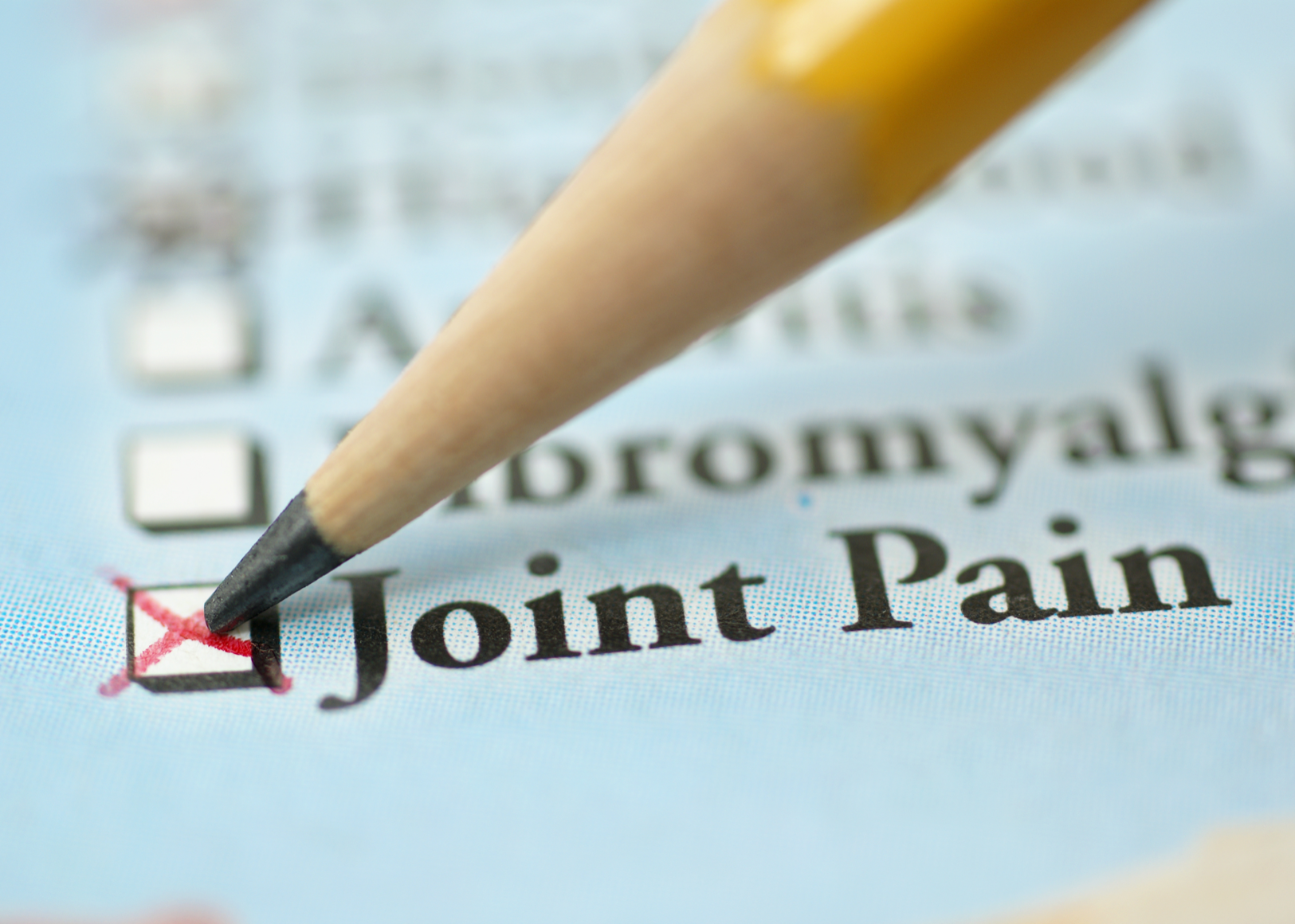Joint Pain
Joint pain is discomfort or soreness in one or more of the body's joints. Joints are where two or more bones meet, allowing for movement and flexibility. Joint pain can affect various body parts, including the knees, hips, shoulders, wrists, and hands.
There are several possible causes of joint pain, including:
Arthritis: The most common cause of joint pain is arthritis, which includes conditions such as osteoarthritis (wear and tear of the joints), rheumatoid arthritis (an autoimmune disease), and gout (a form of arthritis caused by uric acid buildup).
Injuries: Joint pain can result from injuries, such as sprains, strains, or fractures. Ligament tears or cartilage damage can also lead to joint pain.
Inflammation: Inflammation of the joints can occur due to conditions like bursitis (inflammation of the fluid-filled sacs that cushion the joints), tendinitis (inflammation of the tendons), or synovitis (inflammation of the joint lining).
Infections: Certain infections, such as bacterial or viral infections, can cause joint pain. Examples include septic arthritis (a common disease) or viral arthritis (joint inflammation due to viral infection).
Autoimmune diseases: Autoimmune diseases like lupus or psoriatic arthritis can cause joint pain as the immune system attacks the body's tissues, including the joints.
Overuse or repetitive motion: Joint pain can result from repetitive stress or overuse of a joint, commonly seen in conditions like carpal tunnel syndrome or tennis elbow.
The treatment of joint pain depends on the underlying cause. It may include:
Pain relief medication: Over-the-counter pain relievers like nonsteroidal anti-inflammatory drugs (NSAIDs) can help reduce pain and inflammation. In some cases, prescription medications may be necessary.
Physical therapy: Specific exercises and techniques can help improve joint mobility, strengthen supporting muscles, and reduce pain.
Hot or cold therapy: Applying heat or cold packs to the affected joint can relieve temporary pain and reduce inflammation.
Rest and protection: Resting the joint and avoiding activities that worsen the pain can aid in the healing process.
Assistive devices: Braces, splints, or canes can support and relieve stress on the affected joint.
Injections: Corticosteroid injections or hyaluronic acid injections may be used to reduce inflammation and relieve pain.
Suppose you are experiencing persistent or severe joint pain. Consulting with a healthcare professional, such as a rheumatologist or orthopedic specialist, is advisable in that case. They can assess your symptoms, diagnose the underlying cause, and recommend appropriate treatment options tailored to your situation.

